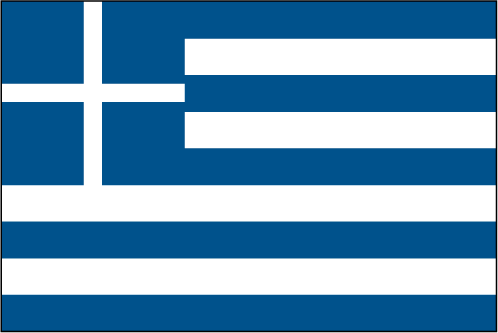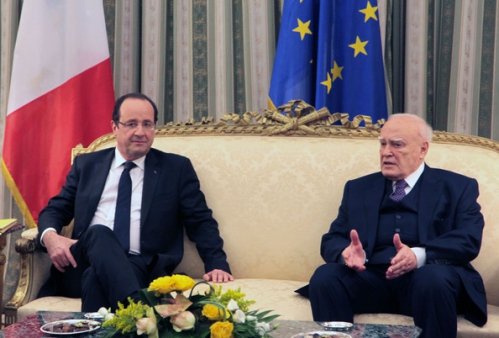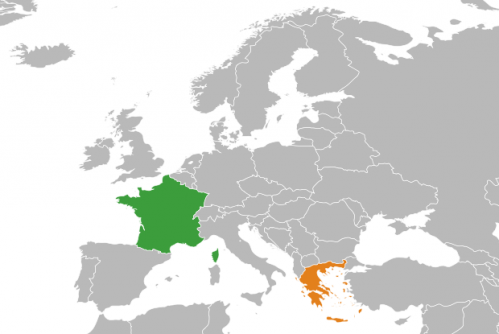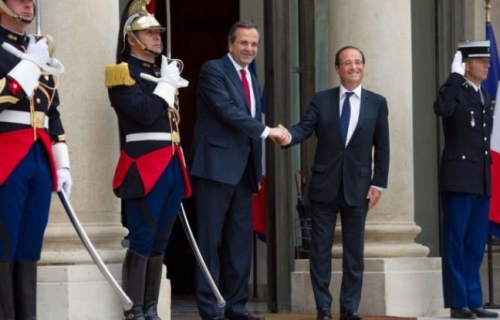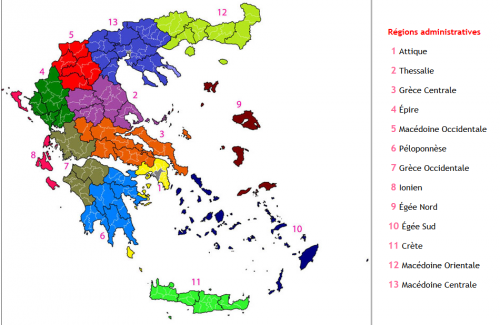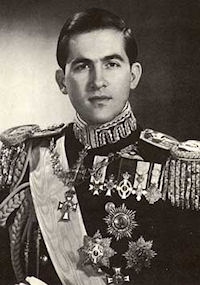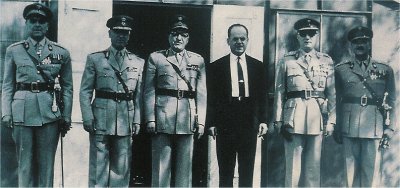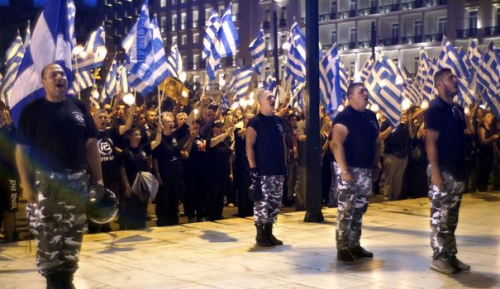3.1 Contemporary Greece : a political introduction
meaning of Greek flag
The capital of Greece is Athens. The national colours of Greece are blue and white.
http://www.cotton-shop.ch/catalog/default.php?cPath=22_25_32_175
The coast of arms of Greece consists of a white cross on a blue exatcheen ??? wich is surrounded by two laurel branches. It was established on 7th june 1975. Blue symbolizing the sky and the sea / the white : the purity of the Greek war of independance.
The cross represents the christian religion, nine blue and white horizontal stripes on the flag symbolize the nine syllables of the Greek currency alphabet ?. The anthem of freedom is a poem written by Dionysios Solomos (1823).
Relations between Greece and France are traditionnaly close narrow ?, the political aspects were first formed with Franco-Hellenic frienship and cooperation but this solidarity between the two peoples was also built on cultural and ideological elements. Unfortunately, the cross reduced the contacts and excanges between the two countries.
Greece is considered as the founding country of the democracy. It was only in 1821, date of its independance, that Greece learnt liberty. The country had to make up for economic, technological and intellectual retardation and carry on the fight to impose freedom, especially during the dictatorship of colonels from 1967 to 1974. For its entry in European economic community ? in 1981, Greece continued to evolve and to transform. Great efforts were performed, from every point of view. Greece is today, a mixture of culture and traditions, western and oriental traits.
Since 2005, the president has been Karolos Papoulias.
Your president with our president, François Hollande in Athens, 2013.
http://www.zimbio.com/photos/Karolos+Papoulias/Francois+Hollande
Political presentation of Greece
France and Greece are linked: they have had good relations since the end of WW2 with the help of E.U. (on the economical, financial, commercial, scientific plans, … ).
Antonis Samaras, Prime minister of Greece, and François Hollande, French president
http://www.20minutes.fr/economie/990445-20120825-hollande-grece-doit-rester-zone-euro-demontrer-credibilite
Greece is divided in 13 administrative areas:
→Attica
→Central Greece
→West Greece
→Peloponnese
→Thessaly
→Central Macedonia
→West Macedonia
→East Macedonia and Thrace →Epirus
→North Aegean
→South Aegean
→Ionian Islands
→Crete
They are divided in 51 nomes (administrative divisions) and in 147 eparchies (districts).
http://www.amb-grece.fr/grece/cartes_administratives.htm#2
Greece has known several political phases:
_monarchical regime until 1967,
Constantine II, king of the hellenes (1964-1974)
http://www.globalsecurity.org/military/world/europe/gr-king-constantine-ii.htm
_totalitarial regime of «Colonels», after a coup from 1967 to 1974,
Georgios Papadopoulos, Prime Minister of Greece during the Colonel's dictatorship
http://www.humanite.fr/grece-le-17-novembre-le-souvenir-de-la-lutte-des-etudiants-de-polytechnique
_parlementarial Republic since the 1975 constitution.
The Colonels' dictatorship started after King Constantin II's fall and his exile to Rome. To keep and reinforce their power Colonels killed all their political enemis. To make believe in a political liberty and a diversity, they helped some small governments to have access to power. In 1968 an assassination attempt against colonel Papadopoulos started rebellions. A few years later, the crisis was fatal for the dictatorship already weakened by the riots.
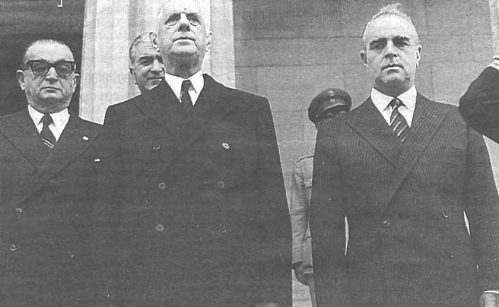
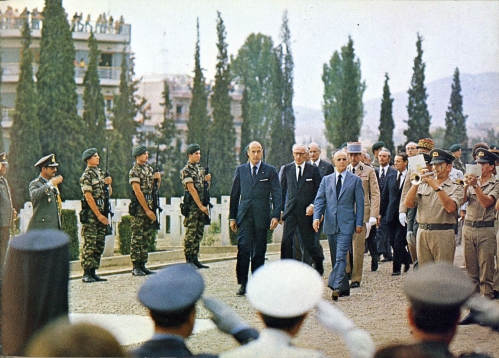
Konstantínos Karamanlís was Prime minister in 1963 (first photography with French president De Gaulle) and then in 1974 (Second photography with French president Valéry Giscard d'Estaing in 1975)
http://www.helleniccomserve.com/pastpresent16may1963.html
http://www.ambafrance-gr.org/Visites-du-General-de-Gaulle-et
This dictatorship was fought by artists like Melina Mercouri and Teodorakis who used their songs and compositions to proclaim their freedom.

Mikis Theodorakis (left) and Melina Mercouri (right) in 1970 in Paris
http://5minutes.rtl.lu/fr/actualite/culture/517059.html
The neo-nazis party has been really present in Greece since 2008 crisis: they have 21 representatives in Parliament out of 300. Moreover, the Orthodox Church isn't separated from the government, and the President doesn't have any political power: it's the Prime Minister who rules the nation.

